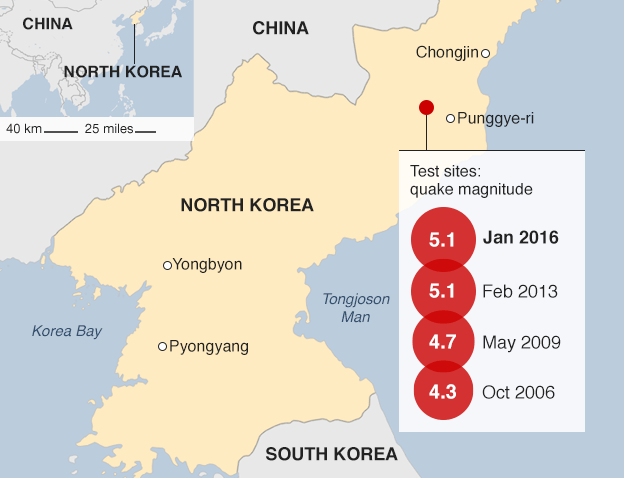Media Report

- Reuters reports: "China's Defense Ministry on Friday denied reports that Chinese troops were massing on the North Korean border, ahead of a possible fifth North Korean nuclear test, saying its deployments there were normal. The Hong Kong-based Information Center for Human Rights and Democracy said earlier this week that China had sent 2,000 troops to the border, a story picked up by Russian and Iranian news outlets, among others....'The relevant report does not accord with the facts,' the Defense Ministry said in a short statement. 'The Chinese military maintains normal combat readiness and training on the China-North Korea border.'...Reports periodically surface about unusual troops movements on the border, which are hard to verify independently and generally quickly denied by the Chinese government."
- The New York Times reports: "Last week, Apple's iBooks Store and iTunes Movies were shut down in China, just six months after they were started there....The company counts China as its second-largest market after the United States....China has sweeping goals in its move against Apple, said Daniel H. Rosen, founding partner of Rhodium Group, a New-York based advisory firm specializing in the Chinese economy. 'They are interested in protecting the content that the Chinese people see, policing its national security and favoring indigenous giants such as Huawei, Alibaba and Tencent,' Mr. Rosen said. In this new era, he added, China 'is strongly disinclined to accept the dominance of foreign players on the Internet, not least those from the United States.'"
- The Washington Post reports: "Work is proceeding quickly on China's planned mission to land a rover on Mars by 2020, the chief administrator of the country's ambitious space program said Friday. Formally announced in January, China's Mars voyage will attempt to recreate the success of the U.S. Viking 1 mission that landed a rover on the planet four decades ago. 'What we would like to do is to orbit Mars, make a landing, and rove around for reconnaissance in one mission, which is quite a challenge,' China National Space Administration head Xu Dazhe said at a rare news conference. 'This is a project that has attracted much attention from both the science and space fields.' Xu said China will further explore civilian uses of space technology in areas such as navigation, remote sensing and communications, and will seek international collaborations."
Calendar
- 2016-04-21 US envoy says China, US united in opposition to NKorea tests
- 2016-04-20 Democrat attacks policy on China, Republican defends it
- 2016-04-19 China Extending Anti-Graft Measures to Officials' Families
- 2016-04-18 Chinese Housing Market Shakes Off a Slump
- 2016-04-17 China's Reforms Give Global Economy Some Breathing Room, Leaders Say
- 2016-04-15 Senior Chinese Military Officer Visited Dispute Island
- 2016-04-14 China to punish hundreds of officials over vaccine scandal
- 2016-04-13 China's Island Building Hurts Environment, U.S. Report Says
- 2016-04-12 China criticizes G-7 statement on South China Sea
- 2016-04-11 Over 80 Percent of Water Is Polluted in Tested China Wells
News
- The New York Times Apple Services Shut Down in China in Startling About-Face
- Reuters China denies reports of massing troops at North Korea border
- The Washington Post China plans to land on Mars by 2020
- Bloomberg Business China's Great Ball of Money Is Rushing Into Commodities Futures
- TIME Law and Order Is at the Heart of the China-Taiwan Deportation Dispute
- BBC News The massive phone scam problem vexing China and Taiwan
- Reuters China tells Taiwan it will try telecoms fraud suspects
- The Washington Post China trash incinerator project called off after protest
- The New York Times Fraud Suspects From Taiwan Have Confessed, Chinese State Media Reports
- The Wall Street Journal China Eases Path for Foreign Drugmakers' Hepatitis C Treatments
- Reuters China official says film 'The Martian' shows Americans want space cooperation
- BBC News China anti-doping lab suspension mocked on social media
- The Wall Street Journal Apple Suspends Online Book and Movie Services in China
Commentary
- The New York Times: Sinosphere China to Develop Floating Nuclear Power Plants
- The Wall Street Journal: China Real Time Phone Scams Dial Up China-Taiwan Heat
- The Diplomat Did Russia Just Side With China on the South China Sea?
- The National Interest War in the South China Sea: Not Worth It
- The New York Times: Sinosphere Q. and A.: Liao Yiwu on 'Love in the Time of Mao'
- The Wall Street Journal Trump Would Make China Great Again
- The National Interest The One-Man Master Plan to Avoid War with China
